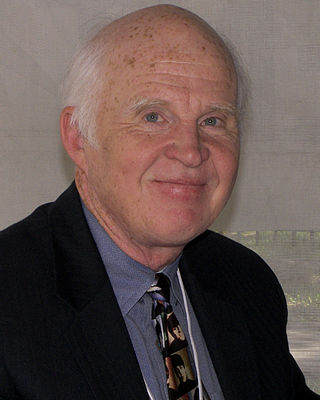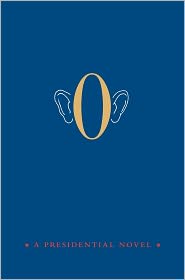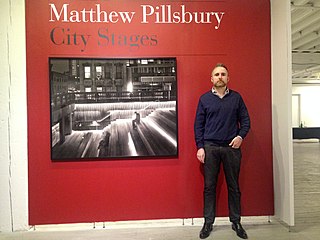
Speculative fiction is an umbrella genre of fiction that encompasses all the subgenres that depart from realism, or strictly imitating everyday reality, instead presenting fantastical, supernatural, futuristic, or other imaginative realms. This catch-all genre includes, but is not limited to, science fiction, fantasy, horror, slipstream, magical realism, superhero fiction, alternate history, utopia and dystopia, fairy tales, steampunk, cyberpunk, weird fiction, and some apocalyptic and post-apocalyptic fiction. The term has been used for works of literature, film, television, drama, video games, radio, and their hybrids.
Creative nonfiction is a genre of writing that uses literary styles and techniques to create factually accurate narratives. Creative nonfiction contrasts with other non-fiction, such as academic or technical writing or journalism, which are also rooted in accurate fact though not written to entertain based on prose style. Many writers view creative nonfiction as overlapping with the essay.

Joyce Carol Oates is an American writer. Oates published her first book in 1963, and has since published 58 novels, a number of plays and novellas, and many volumes of short stories, poetry, and non-fiction. Her novels Black Water (1992), What I Lived For (1994), and Blonde (2000), and her short story collections The Wheel of Love (1970) and Lovely, Dark, Deep: Stories (2014) were each finalists for the Pulitzer Prize. She has won many awards for her writing, including the National Book Award, for her novel Them (1969), two O. Henry Awards, the National Humanities Medal, and the Jerusalem Prize (2019).

Jonathan Allen Lethem is an American novelist, essayist, and short story writer. His first novel, Gun, with Occasional Music, a genre work that mixed elements of science fiction and detective fiction, was published in 1994. In 1999, Lethem published Motherless Brooklyn, a National Book Critics Circle Award-winning novel that achieved mainstream success. In 2003, he published The Fortress of Solitude, which became a New York Times Best Seller. In 2005, he received a MacArthur Fellowship. Since 2011, he has taught creative writing at Pomona College.

Clifford Michael Irving was an American novelist and investigative reporter. Although he published 20 novels, he is best known for an "autobiography" allegedly written as told to Irving by billionaire recluse Howard Hughes. The fictional work was to have been published in 1972. After Hughes denounced him and sued the publisher, McGraw-Hill, Irving and his collaborators confessed to the hoax. He was sentenced to two and a half years in prison, of which he served 17 months.
Flash fiction is a brief fictional narrative that still offers character and plot development. Identified varieties, many of them defined by word count, include the six-word story; the 280-character story ; the "dribble" ; the "drabble" ; "sudden fiction" ; "flash fiction" ; and "microstory".

The "Great Moon Hoax", also known as the "Great Moon Hoax of 1835" was a series of six articles published in The Sun, beginning on August 25, 1835, about the supposed discovery of life and civilization on the Moon. The discoveries were falsely attributed to Sir John Herschel and his fictitious companion Andrew Grant.

Unfit for Command: Swift Boat Veterans Speak Out Against John Kerry is a 2004 book about then U.S. Presidential candidate John Kerry by John O'Neill and Jerome Corsi published by Regnery Publishing. The book was released at the time that ads by Swift Vets and POWs for Truth were being aired on U.S. television.
Literary fiction, mainstream fiction, non-genre fiction, serious fiction, high literature, artistic literature, and sometimes just literature, are labels that, in the book trade, refer to market novels that do not fit neatly into an established genre or, otherwise, refer to novels that are character-driven rather than plot-driven, examine the human condition, use language in an experimental or poetic fashion, or are simply considered serious art.
Blog fiction is an online literary genre that tells a fictional story in the style of a weblog or blog. In the early years of weblogs, blog fictions were described as an exciting new genres creating new opportunities for emerging authors, but were also described as "notorious" in part because they often uneasily tread the line between fiction and hoax. Sometimes blog fictions are republished as print books, and in other cases conventional novels are written in the style of a blog without having been published as an online blog. Blog fiction is a genre of Electronic literature.

Taylor Branch is an American author and historian who wrote a Pulitzer Prize winning trilogy chronicling the life of Martin Luther King Jr. and much of the history of the American civil rights movement. The final volume of the 2,912-page trilogy, collectively called America in the King Years, was released in January 2006, and an abridgment, The King Years: Historic Moments in the Civil Rights Movement, was published in 2013.

Madeleine Thien is a Canadian short story writer and novelist. The Oxford Handbook of Canadian Literature has considered her work as reflecting the increasingly trans-cultural nature of Canadian literature, exploring art, expression and politics inside Cambodia and China, as well as within diasporic East Asian communities. Thien's critically acclaimed novel, Do Not Say We Have Nothing, won the 2016 Governor General's Award for English-language fiction, the Scotiabank Giller Prize, and the Edward Stanford Travel Writing Awards for Fiction. It was shortlisted for the 2016 Man Booker Prize, the 2017 Baileys Women's Prize for Fiction, and the 2017 Rathbones Folio Prize. Her books have been translated into more than 25 languages.

Gary Shteyngart ' is a Soviet-born American writer. He is the author of five novels and a memoir. Much of his work is satirical.

Jennifer Egan is an American novelist and short-story writer. Her novel, A Visit from the Goon Squad, won the 2011 Pulitzer Prize for Fiction and National Book Critics Circle Award for fiction. From 2018 to 2020, she served as the president of PEN America.
Rohan Kriwaczek is an English writer, composer and violinist. He studied under Peter Maxwell Davies, Oliver Knussen and Judith Weir, and has written classical works, scores for theatre, TV, and radio. He worked with Ken Campbell in 1995 on a BBC Radio 3 Studio 3 programme.
A musical hoax is a piece of music composed by an individual who intentionally misattributes it to someone else.

Johann Dieter Wassmann (1841–1898) is a fictitious artist and sewerage engineer, purportedly from Leipzig, Saxony, in east-central Germany. He is the creation of the American-born artist and writer Jeff Wassmann. As a result of the widespread dissemination of his work, Johann Dieter Wassmann is sometimes mistakenly cited as a lesser-known figure among late-19th-century European artists; he is most often identified as an early purveyor of the Dada and Surrealist movements and has become closely associated with several notable artists of the first half of the 20th century, including Kurt Schwitters, Marcel Duchamp, Eugène Atget and Joseph Cornell.

O: A Presidential Novel is a fiction book by an anonymous author about the 2012 U.S. presidential race. It was released on January 25, 2011. The marketing strategy for the book has been compared to the 1996 roman à clef, Primary Colors: A Novel of Politics, which was also initially ascribed to an anonymous author. Its stated objective is to "offer some resonant truths about what President Obama is really thinking".

A debut novel is the first novel a novelist publishes. Debut novels are often the author's first opportunity to make an impact on the publishing industry, and thus the success or failure of a debut novel can affect the ability of the author to publish in the future. First-time novelists without a previous published reputation, such as publication in nonfiction, magazines, or literary journals, typically struggle to find a publisher.

Matthew Pillsbury is a French-born American photographer, living in New York City.













